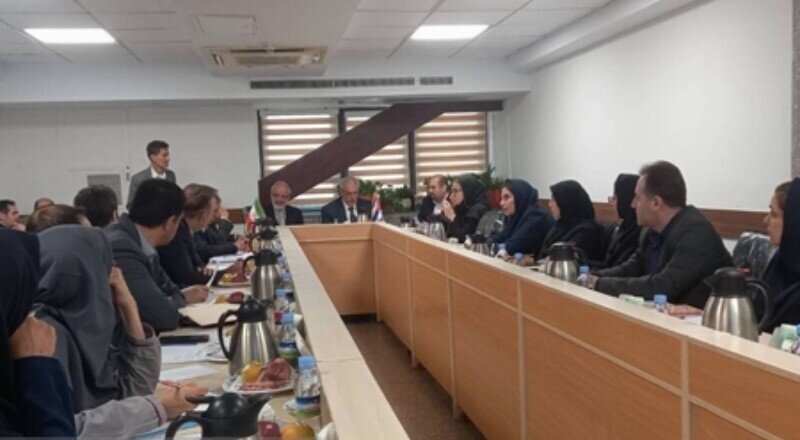Deputy health minister, Cuban envoy hold meeting

TEHRAN – The deputy health minister for international affairs, Mohammad-Hossein Niknam, and the Cuban ambassador to Tehran, Alexis Bandrich Vega, have discussed ways to foster cooperation.
The officials attended a coordinating meeting on Sunday to discuss issues for the upcoming Iran-Cuban Joint Economic Committee Meeting.
Referring to the friendly relations, Vega said the main goal of the meeting was to boost solidarity between the two countries, IRNA reported.
“The two countries seek to establish peace not only between Iran and Cuba but among all the countries of the world,” the Cuban official stressed.
Sadly, sanctions have made life more difficult for targeted nations due to imposed barriers and restrictive measures, he added.
However, Iran and Cuban relations are growing; Iranian knowledge-based companies will attend an exhibition planned to be held next month in Havana, and the Cuban minister of information and communication technology will pay a visit to Iran next week.
“Holding the joint committee meeting will bring positive outcomes for the two countries. Cuba is a safe market for Iran. Also, it can be a reliable friend with potential benefits in the long- term for the country.
Niknam, for his part, said the friendly relations between Iran and Cuba are exemplary. There have always been positive interactions between the two countries, but the current relations can be expanded.
The official touched also on the joint projects to develop vaccines during the Covid-19 pandemic.
He expressed optimism that the joint commission will help develop the relations between Iran and Cuba.
The 19th Joint Economic Committee Meeting will soon be held in Havana, and several agreements are scheduled to be signed.
Iran, Cuba discuss joint response to decry U.S. sanctions
In August, representatives from Iran's Pasteur Institute and the Razi Vaccine and Serum Research Institute convened with their Cuban counterparts to address the impacts and challenges posed by the illegal unilateral sanctions imposed by the United States.
This discussion occurred during the fourth meeting of the working group on the strengthening of the Biological Weapons Convention (BTWC), held from August 19-23, 2024, in Geneva, Switzerland.
During the meeting, officials from the Razi and Pasteur Institute highlighted Iran's advancements in biological sciences and its collaborative efforts with nations such as Senegal, Mauritania, Mali, Uzbekistan, and Cuba in vaccine and serum production, as well as the organization of various training programs.
They also emphasized the difficulties Iran encounters in exercising its international rights due to the sanctions imposed by the United States on the Islamic Republic.
The BTWC, an international treaty that prohibits the development and stockpiling of weapons of mass destruction, was enacted in March 1975 and has since been ratified by 187 countries.
Nevertheless, the United States undermines the rights of nations to engage in international cooperation and to leverage the advancements in biological sciences, as it imposes unlawful sanctions and disregards its international legal responsibilities in this area.
MT/MG
